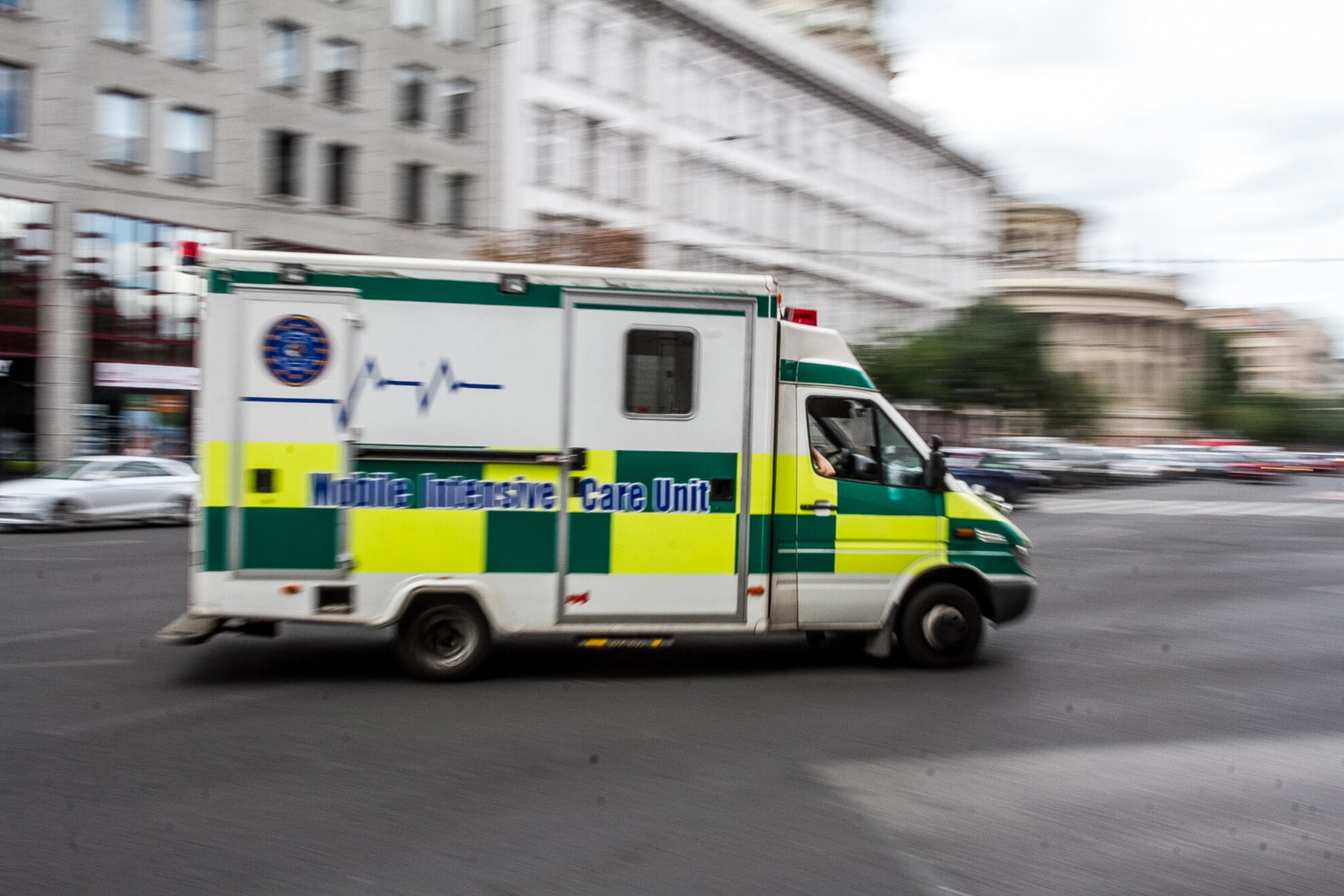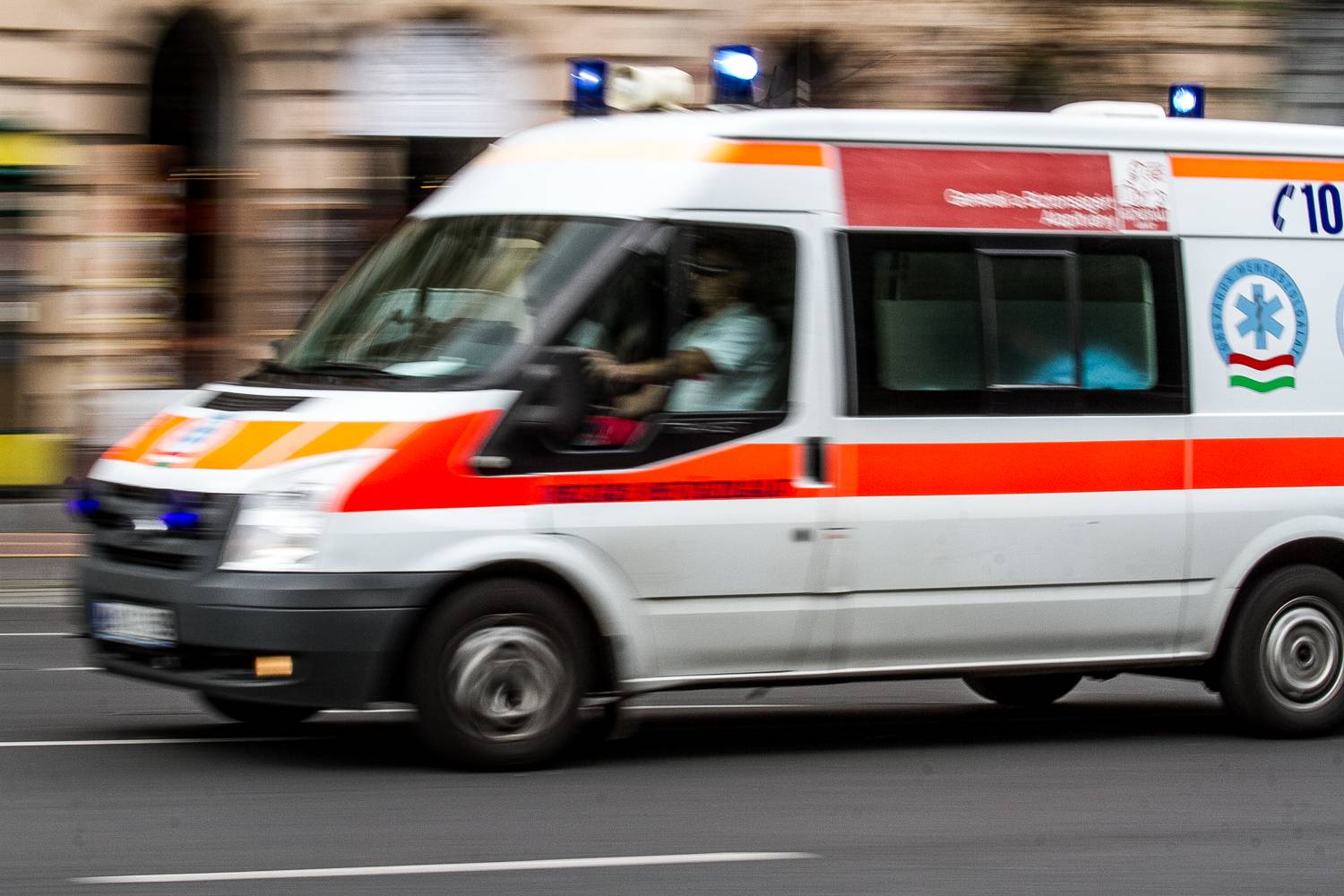Emergencies: ambulances and hospitals
For a public ambulance, free-call 104 or +36 1 350 0388. The ambulance will take patients to the nearest available hospital ("kórház" in Hungarian). Private paid ambulances such as
VIP Ambulances (+36 1 395 5565) are also an option.
If you would like to go to a hospital by yourself, there are a few options, but keep in mind not all hospitals have doctors on-call to take patients that just drop in. In Pest, near Keleti train station, there's the
Péterfy Sándor Hospital and Casualty Center
( Budapest 1081 , Fiumei Street 17 ). On the Buda side, visit the Szent Imre Hospital (Budapest 1115, Tétényi Road 12-16).
Unless it's an emergency, hospital treatment requires a doctor’s referral. Some
emergency doctor clinics (éjszakai orvosi ügyelet) are open nights and on weekends when general-practice clinics are closed. There are clinics in most districts. There are also some 24-hour pharmacies.

Finding a doctor
Public general practitioners, known as “háziorvos”, generally work certain days a week either during morning or afternoon/evening shifts. You can find the nearest clinic with
a Google search of
"
háziorvosi rendelő
" and the number of the district ("kerület") that you're in. Someone you know in Budapest might also provide a recommendation.
The doctor’s assistant takes bookings in advance, but if you don’t have a booking you can also drop in and wait for the next available time slot. It's best to go early in the doctor's shift.
The doctor’s assistant generally sits in during consultations,
so there may only be other patients in the waiting room. The assistant will come out from time to time to call in the next patient – at this point, get their attention and let them know you’re there. If the assistant doesn’t come out, it’s because patients are going in one after another in the order in which they arrived. In this case you can go in when it’s your turn.
Remember, it’s normal for the doctor’s assistant to sit in during your consultation...They will be recording your information, printing out medical documents,
and often they can be very helpful with translating and navigating the system. Of course you can usually ask for the assistant to leave, for privacy.
Most public healthcare providers are of good quality, but not all will have English-speaking practitioners. Some expats and tourists choose to use private clinics instead.

Expat and tourist clinics There are a number of private clinics catering to expats and foreign tourists, with doctors that speak many languages. These can be more expensive, but if you have travel insurance your costs could be covered. Expat or tourist medical clinics might have direct billing relationships with some insurers. Here are some of Budapest's most prominent private clinics that specialize in helping foreigners:FirstMed CentresRózsakert Medical CenterDr RoseMedicoverPharmaciesPharmacies – called “gyógyszertár” or “patika” – are easy to find citywide, and sell many medicines over-the-counter along with filling prescriptions. Pharmacies in Budapest are generally marked by green signs or a flashing cross and are often open till about 6pm or 8pm. If you need to find a pharmacy out-of-hours (nights or weekends) look for an “Ügyeletes Gyógyszertár/Patika”.

Finding a specialist In most cases a general practitioner, or “háziorvos”, will provide a referral to a specialist or "szakorvos". Specialists are often grouped together in one building known as a " szakrendelő".
You don’t need a referral to see a dermatologist, gynecologist, urologist, otolaryngologist (ear, nose and throat conditions), ophthalmologist, oncologist, or general surgery. But it's worth calling the " szakrendelő" to make an appointment.
European Union residents in need of dental care will need to find one registered with the National Health Insurance Fund, known as ”OEP”, to access free basic/urgent care.

Costs: EU residents and students
For European Union residents (plus Iceland, Norway, Liechtenstein, and Switzerland) “basic healthcare” is free. Have a European Health Insurance Card (EHIC) and passport or ID ready to show to medical staff.
You must get your EHIC before arriving in Hungary (or be able to get one and present it within 15 days of treatment), otherwise medical care must be paid for.
This “basic care” doesn’t cover non-emergencies or emergency repatriation. The EHIC also doesn’t cover pre-existing conditions or “medical tourism” either, but chronic conditions are covered. Subsidies on medicines vary and EU residents (with ID) might be eligible; this will be calculated as you pay at pharmacies.
EU students studying in Hungary will be insured using their EHIC for the first 12 months, after this EU students will need to transfer to Hungary’s national health insurance scheme (see below for details).
Costs: special agreements If you are from Croatia, Bosnia and Herzegovina or Montenegro you can receive urgent medical care in Hungary. To receive this, find out what paperwork is necessary from your country’s health insurance organization
before you arrive in Hungary.
Citizens of Angola, Iran, Jordan, Kosovo, Kuwait, Macedonia, Mongolia, North Korea, Serbia, Russia, and Ukraine can receive healthcare in immediately necessary cases by showing their passport.

Costs: workers, students and residentsIf you are residing in Hungary to work or study, you can register for a TAJ card (the card for Hungary’s national health insurance scheme) so that you are publicly insured. You can get information about the current monthly contribution fee and any other requirements at the so-called OEP office (1139 Budapest, Teve Street 1). You will need to take the relevant documentation from your workplace or educational institution when you go to apply.
If you are working, the monthly contribution fee for public health insurance is deducted from your wages. If you are residing in Hungary but aren’t working or studying you can enroll in the national health insurance scheme but will need to pay a contribution fee. The monthly contribution fee varies between students and non-students.
Students who have been residing in Hungary for more than one year must enroll in this national health insurance scheme.
Unlike other foreigners in Hungary, having a TAJ card means you will be able to access all public healthcare for free – not just emergency or urgent care. Some foreigners choose private health insurance instead.
Costs: tourists Only emergency first-aid assistance is free – foreign tourists must pay for all other medical care and medicines. Costs will vary greatly between doctors working at publicly run clinics and those working privately.
Travel insurance is crucial. The old saying “if you can’t afford travel insurance, you can’t afford to travel” is probably true. Some insurers will pay costs directly to the healthcare provider while others will only reimburse costs –
meaning you’ll have to pay the bill upfront before your claim is processed and you are reimbursed.
Do I need to tip medical practitioners?Tipping medical practitioners is a leftover practice from communist times, but it's not necessary and is becoming less common. You won't receive lesser care if you don’t tip, particularly in emergencies, although some people still prefer to give a tip to the main doctor overseeing their case 'just in case'.




